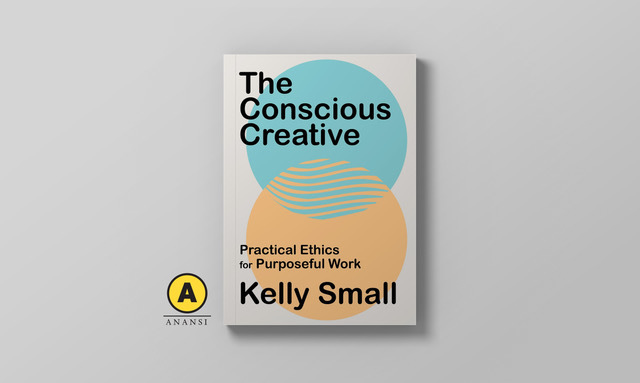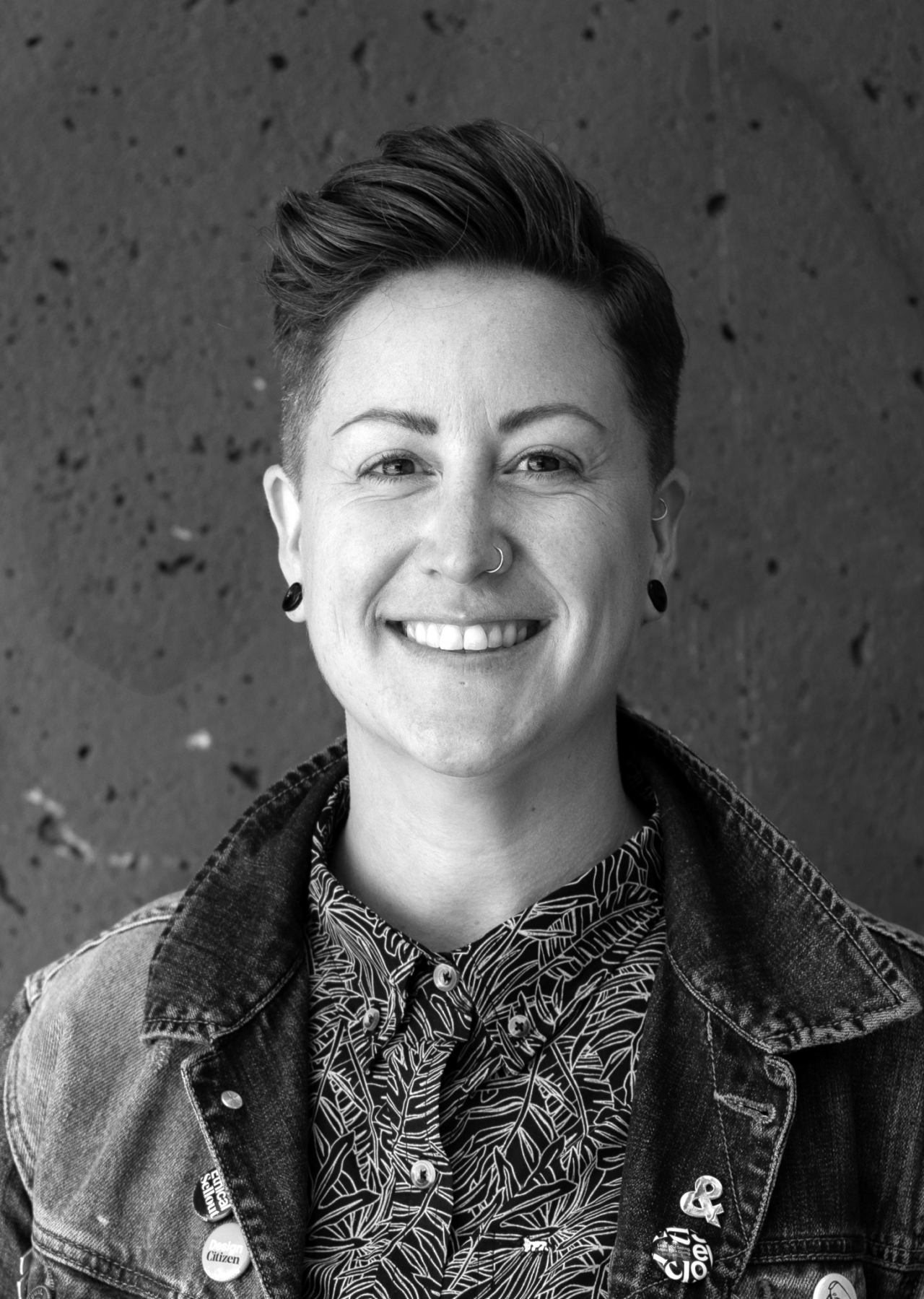Kelly Small Explores the Union of Personal and Professional Ethics in New Book

Posted on | Updated
The Conscious Creative is a mindful and relevant guide for creative folks trying to balance living their values and earning a living.
Alum Kelly Small (MDes 2019) has released The Conscious Creative: Practical Ethics for Purposeful Work, based on their thesis project Ethical Sellout.\
The book is slated for publishing on August 4th, 2020 with House of Anansi Press. The book is currently available for pre-order at your favourite local independent book store, or through Indigo, Barnes & Noble, and Amazon. The Conscious Creative is a mindful and relevant guide for creative folks trying to balance living their values and earning a living. Kelly helps readers navigate the inevitable ethical transgressions of professional creative life with a lighthearted focus on intentionality about their impact.
We asked Kelly about the change in title from their thesis statement since each title certainly has a different feel to it. “To be honest, my publisher and I loved the title Ethical Sellout!” said Kelly. It turns out that another book entered the scene under the same name right before Kelly and their publisher headed into the market under pre-orders. Kelly had previously self-published under the title, but decided to roll with the change.
“Instead of pushing against it, we decided this was an opportunity to investigate titles that might feel more inclusive as not every creative in the industry feels like a sellout. It gave us an opportunity to have a more intuitive and descriptive title,” said Kelly. After some brainstorming, they landed on the current title The Conscious Creative: Practical Ethics for Purposeful Work. “I am hopeful that this change will support a broader readership,” continued Kelly. “The more radical Ethical Sellout will always have a special place in my heart, but I’m embracing The Conscious Creative and its positive, optimistic tone too.”
The Conscious Creative addresses the idea of the individual making incremental shifts toward larger, collective—and hopefully systemic—changes over time. The content tackles serious topics, but the tone is irreverent, and the book doesn’t take itself too seriously. Small writes from personal experience, sharing the very real burnout that can come from years as a creative director in advertising. Kelly is open about how they came to both question and acknowledge their role in a problematic system, which led to their research focusing on the ways one might realize an ethical creative practice within that. Kelly’s thesis culminated in over 100 actionable steps and we had to know what some of their favourites were.
“This is a tough one as I think all of the actions have a lot of value!” said Kelly. “The one that has been most relevant to me as I transition from freelancer/student back into full-time agency leadership has been Redefine Bottom Line Ambitions. I have joined a fabulous team of folks whose professional lives are dedicated to digital fundraising, creative, and strategic consultation for progressive non-profit organizations.”
“The non-profit sector doesn’t compensate creative directors the way that the commercial sector does monetarily, but the non-financial payoff is massive. The satisfaction I get from working within my values for a supportive organization with a commitment to inclusivity, conscious and ethical behaviour, and climate action is exactly what I hoped for when I left the agency world to come to Emily Carr and rethink my career,” shared Kelly. “It’s been life-changing to rethink my own conception of success so that purpose and health are prioritized over financial gain and title-seeking.”
The book was rewritten to include all creative sectors before publishing. “I originally focused on the design, marketing, and advertising worlds,” said Kelly, as those were the areas they are the most familiar with. “I decided to open it up to incorporate people from publishing, architecture, theatre and beyond. The book aims to present near-universally applicable guidance that applies most easily to the creative industries but there is a ton of helpful information in there for just about everybody.”
Kelly acknowledges the privilege they had to be in the position to write this book. “I am deeply aware of my privileged position as someone able to afford a graduate degree, a cross-country move, and the fortitude to leave my career behind to start fresh. I feel grateful and proud that I was able to pull all of this off,” shared Kelly. “I want to work to ensure folks in similar positions—trapped in unethical jobs where burnout is inevitable—can follow their conscience and find their right path. I’m not sure what that looks like yet, but I hope to make it happen.”
The book is timely as ethics are a hot topic right now as we swap in-person for the digital and rely often on some potentially less than favourable options for connecting with work, clients, and customers. We asked Kelly if they had any advice for creatives seeking to remain ethical during the heightened digital presence many of us have currently in these uncertain times. “My advice is not to get caught up in absolute notions of good and bad or ethical and unethical,” said Kelly. “We live in a complex world built on complicated systems that invariably require compromise in order for us to function within them.”
“Will we have to use programs or services with privacy issues or order some of our creative tools from deeply problematic behemoth companies? Perhaps. What we can try to do is maintain a mindfulness about the impacts of our choices and act accordingly,” continued Kelly. “Let’s work to identify our own privilege, power, and places where we, because of who we are, may benefit from society’s systems more than other creatives and work to balance that.”
Learn more about Kelly Small and their practice here.
This article originally appeared on the Emily Carr University Alumni Association's website.
